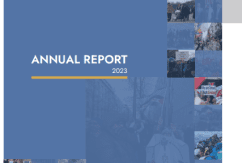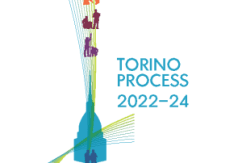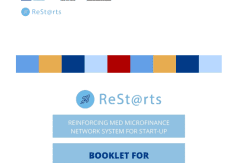Mediterranean CooBEEration: a network for beekeeping, biodiversity and food security
Brief Description
Mediterranean CooBEEration is a project aimed to support beekeeping and its strategic role in the preservation of biodiversity and the improvement of food security and socio-economic development in the Mediterranean area. The project is the natural continuation and capitalization of a long process in support of beekeeping and sustainable development implemented since 2007 by FELCOS Umbria and APAU (Association of Umbrian Beekeepers) with the support of UNDP ART Initiative in the framework of a dialogue of territorial cooperation with Mediterranean countries.Mediterranean CooBEEration is a project aimed to support beekeeping and its strategic role in the preservation of biodiversity and the improvement of food security and socio-economic development in the Mediterranean area. The project is the natural continuation and capitalization of a long process in support of beekeeping and sustainable development implemented since 2007 by FELCOS Umbria and APAU (Association of Umbrian Beekeepers) with the support of UNDP ART Initiative in the framework of a dialogue of territorial cooperation with Mediterranean countries.
Countries covered: Algeria, Lebanon, Morocco, Palestine, Tunisia and Italy.
Objectives
1) Strengthening technical, organizational and lobbying skills of Mediterranean beekeepers and their networks.
2) Advancing knowledge on the strategic role of bees and beekeeping for food security and biodiversity.
3) Spreading a new vision of Beekeeping as “Global Common Good”, through the realization of an international awareness raising campaign in the countries involved.
Beyond its specific goals, the project also has an important parallel purpose: to contribute to the construction of the Mediterranean regional identity, integration and socio-economic cohesion and, at the same time, to show how different types of actors – international organizations, LAs, producers, academics and government institutions – can work together by articulating and harmonizing roles and actions within the framework of a common purpose for sustainable development.
Actions in brief
To reach these goals the project realized several missions of training and technical assistance targeting directly beekeepers and their local and national associations, in order to strengthen their technical and organizational skills and their ability to actively participate in political dialogue and lobbying toward institutions and governments with regards to local, national and international policies in the field of agriculture, environment and trade. Furthermore, in the framework of CooBEEration three new editions of the Mediterranean Beekeeping Forum have been organized (November 2014 in Foligno, Italy; November 2015 in Tunis; November 2016 in and Chefchaouen, Morocco) and two National Forums in Algeria and Palestine.
An important Scientific Research has been realized by Italian and Tunisian researchers, aimed to study the strategic role of bees and beekeeping for biodiversity conservation in areas particularly subject to environmental degradation, biodiversity loss and desertification. In order to collect data and monitor the sector in the target area, a Mediterranean Observatory on beekeeping has been set up, to promote strategies.
Finally the Project realized an international awareness campaign, named CooBEEration Campaign, aimed to create a global alliance to protect bees and beekeeping and to promote appropriate policies and regulations to protect such a strategic sector (and in the same time high sensitive sector) for the biodiversity protection and human welfare. The Campaign wanted to change the public’s perception of beekeeping: from a vision of a simple income generating activity to a much wider and more strategic vision of beekeeping as a Global Common Good.
Implementing partners: FELCOS Umbria (Fund of Local Authorities for Decentralized Cooperation and Sustainable Human Development) (lead partner), APIMED (Mediterranean Beekeepers Federation), UNDP (United Nations Development Programme), INAT (National Agronomic Institute of Tunisia), DIPSA (Department of Agricultural Sciences of the University of Bologna), DISAFA (Department of Agricultural, Forestry and Food Sciences of the University of Turin).































